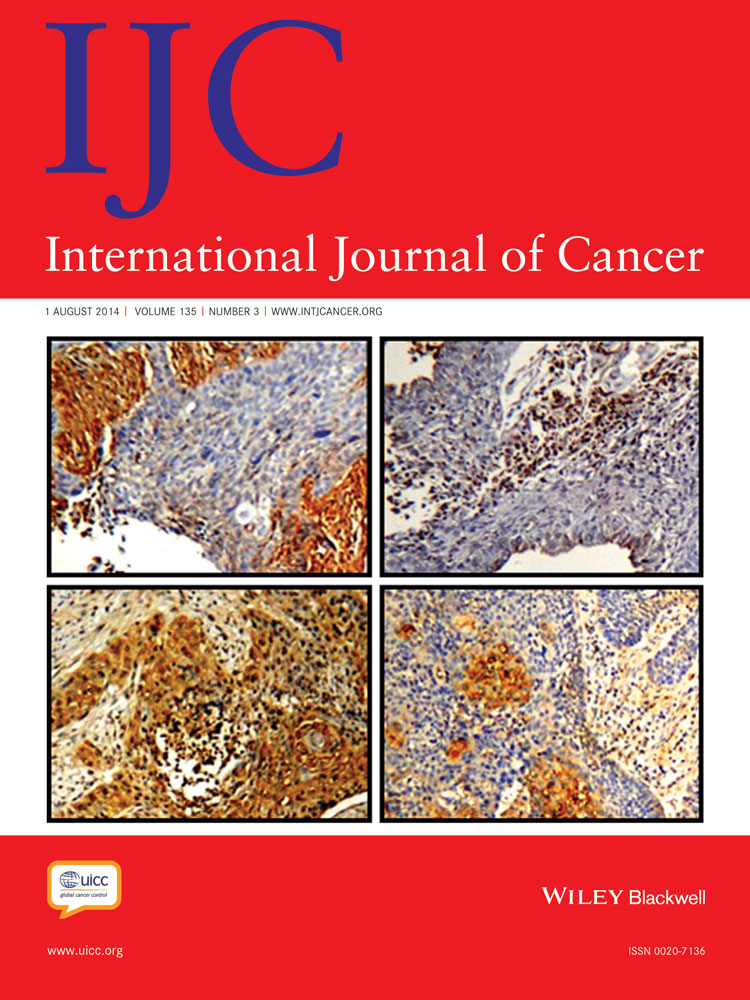Lifetime growth and risk of testicular cancer
Conflict of interest: Nothing to report
Abstract
Adult height is associated with testicular cancer risk. We studied to what extent this association is explained by parental height, childhood height and age at puberty. We conducted a case–control study on germ-cell testicular cancer patients diagnosed in 1997–2008 and resident in the Province of Turin. Information was collected using mailed questionnaires in 2008–2011. Specifically, we asked for adult height (in cm), height at age 9 and 13 (compared to peers) and age at puberty (compared to peers). We also asked for paternal and maternal height (in cm) as indicators of genetic components of adult height. The analysis included 255 cases and 459 controls. Odds ratios (ORs) of testicular cancer were estimated for the different anthropometric variables. Adult height was associated with testicular cancer risk [OR: 1.16, 95% confidence interval (CI): 1.03–1.31 per 5-cm increase]. The risk of testicular cancer was only slightly increased for being taller vs. shorter than peers at age 9 (OR: 1.55, 95% CI: 0.91–2.64) or age 13 (OR: 1.26, 95% CI: 0.78–2.01), and parental height was not associated with testicular cancer risk. The OR for adult height was 1.32 (95% CI: 1.12–1.56) after adjustment for parental height. Among participants with small average parental height (<167 cm or less), the OR of testicular cancer for tall (>180 cm) vs. short (<174 cm) subjects was 3.47 (95% CI: 1.60–7.51). These results suggest that the association between height and testicular cancer is likely to be explained by environmental factors affecting growth in early life, childhood and adolescence.
Abstract
What's new?
Adult height is known to be associated with testicular cancer risk. In this case-control study, the authors examined the extent to which this association is explained by height at various points in life, and also by parental height. They found that adult height is associated with testicular cancer risk, while parental height is not. These findings suggest that the consistently reported association between growth and testicular cancer is likely to be explained by the effect of environmental exposures.




